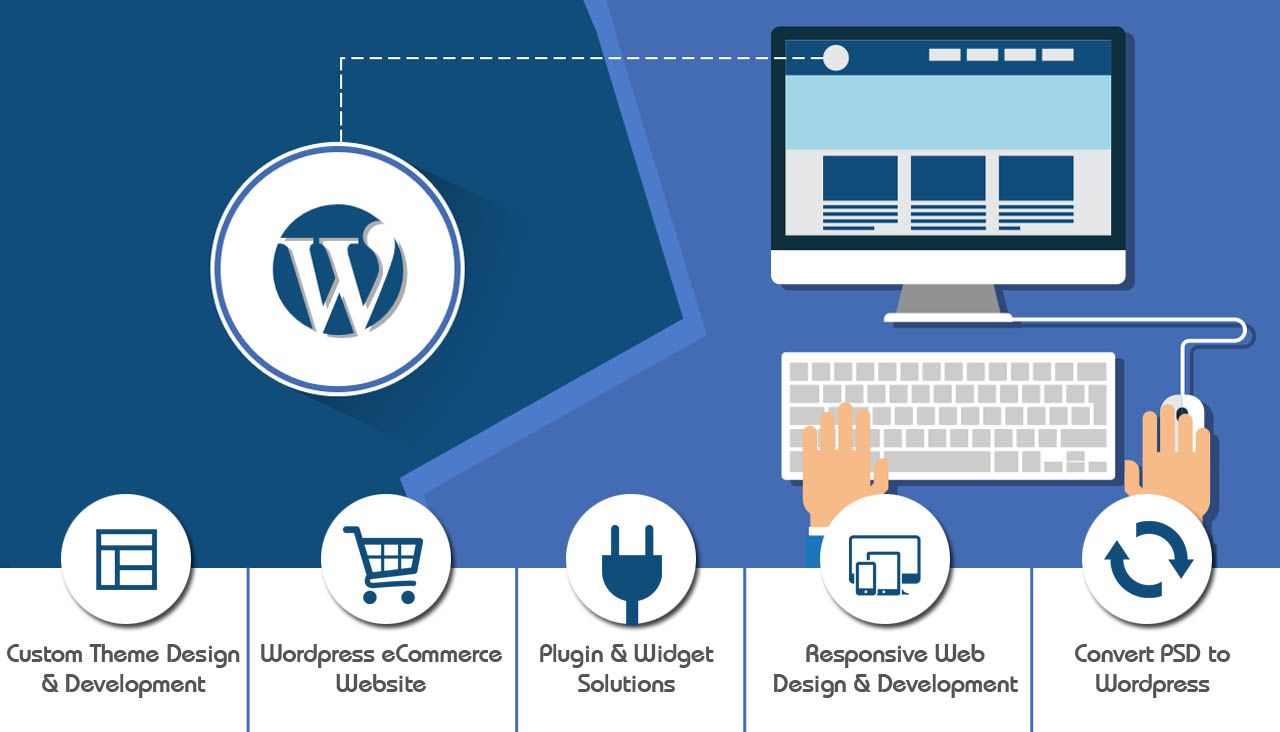
WordPress has emerged as one of the most popular content management systems (CMS) for website development. Its flexibility, ease of use, and robust ecosystem make it a preferred choice for businesses and individuals looking to build a website. Whether you are new to WordPress or looking to expand your knowledge, understanding the basics of WordPress website development is crucial. In this article, we will explore the fundamental aspects of WordPress website development, emphasizing key considerations such as the WordPress CMS, themes, plugins, and customization options.
WordPress CMS: Powering Websites with Simplicity
WordPress serves as a CMS, providing a user-friendly interface for managing website content. It allows users to create, edit, and publish content without requiring technical expertise. The intuitive dashboard and WYSIWYG editor make it easy to manage pages, posts, media, and other elements of the website. WordPress provides a solid foundation for website development, enabling users to focus on creating compelling content and enhancing the user experience.
Themes: Designing the Look and Feel

Themes are pre-designed templates that determine the overall look and feel of a WordPress website. They provide a ready-to-use layout, typography, color schemes, and other design elements. Themes enable users to customize the appearance of their website without extensive coding knowledge. WordPress offers a vast library of free and premium themes, allowing users to select a design that aligns with their branding and desired aesthetic.
Plugins: Extending Functionality and Customization
Plugins are additional software components that extend the functionality of a WordPress website. They can be used to add features, enhance performance, improve security, and integrate with third-party services. WordPress offers a wide range of plugins, both free and premium, that cater to various needs, such as SEO optimization, contact forms, e-commerce functionality, social media integration, and more. Plugins empower users to customize and enhance their website according to specific requirements.
Customization: Tailoring the Website to Your Needs

WordPress provides ample customization options to tailor the website to individual needs. Users can modify themes by adjusting colors, fonts, layouts, and other visual elements to match their branding and design preferences. Additionally, WordPress allows users to create custom page templates, add custom code snippets, and leverage hooks and filters for more advanced customization. Customization options enable users to create unique and personalized websites that align with their specific goals and requirements.
Community Support: Learning and Growing Together
One of the significant advantages of WordPress is its vibrant community support. Online forums, documentation, tutorials, and developer resources are readily available for users to seek guidance, troubleshoot issues, and learn best practices. The WordPress community actively contributes to the platform’s growth, offering continuous updates, security enhancements, and innovative solutions. Engaging with the WordPress community allows users to tap into a vast pool of knowledge and stay updated with the latest trends in website development.

In conclusion, understanding the basics of WordPress website development empowers individuals and businesses to leverage the power of this versatile CMS. With its user-friendly interface, extensive theme library, diverse range of plugins, and customization options, WordPress provides a solid foundation for building unique and engaging websites. By utilizing the WordPress CMS, selecting appropriate themes, leveraging plugins, and customizing the website to specific needs, users can create professional and dynamic websites without extensive technical expertise. Embracing the basics of WordPress website development opens doors to endless possibilities for creating functional, visually appealing, and successful websites.
Key Points Summary
- WordPress serves as a content management system (CMS) for website development, providing a user-friendly interface for managing website content.
- Themes are pre-designed templates that determine the overall look and feel of a WordPress website, allowing users to customize the appearance without extensive coding knowledge.
- Plugins extend the functionality of a WordPress website, offering additional features, performance enhancements, and integration with third-party services.
- WordPress provides ample customization options, allowing users to tailor their website’s visual elements, create custom page templates, and add custom code snippets.
- The WordPress community offers extensive support through forums, documentation, tutorials, and developer resources, providing opportunities for learning and growth in website development.
- Understanding the basics of WordPress website development empowers users to create professional and dynamic websites without extensive technical expertise.
Contact our Vietnam team to learn more about how we can help you optimize your website for SEO and achieve your online marketing goals.

Leave a Reply